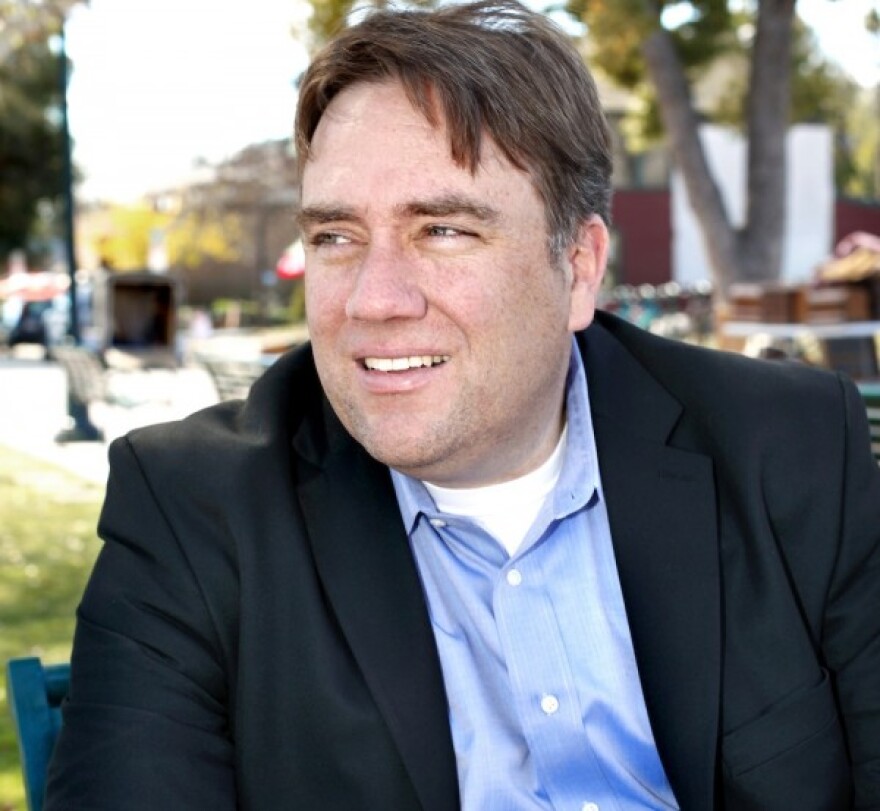At the moment of my birth—a moment that occurred only last week—I was the most valuable child in the history of California.
That’s not merely the opinion of my proud father, the usual author of this Connecting California column. And that’s not the idle boast of a 7-day-old infant. My value is a hard demographic and economic fact for California—and a huge burden for me.
Few Californians know it, but our state has a shortage of children. California’s birth rate has fallen to 1.94 babies per woman—below the 2.1 babies-per-woman fertility standard necessary to maintain a population over the long term. And migration to California from other states and countries is down. The result: Over the past decade, the state’s number of children under the age of 10 declined by 187,771. This decade, California is projected to lose another over 100,000 of us. While children were one-third of all Californians in 1970, they will be only one-fifth by 2030, according to a recent report on this shortage from University of Southern California demographer Dowell Myers.
This older California is a problem both for you—those Californians old enough to read this—and for me.
For you, having fewer kids around means that you have a smaller talent pool from which to develop the adults needed to replace you as employees, citizens, and consumers. And you’ll need plenty of replacements, since the state is seeing unprecedented growth in the number of retirees. Indeed, with the number of old people growing and the number of kids shrinking, each new child born in California is more valuable than the last. We infants will need to support you and buy your houses.
For me, the child shortage means greater pressure than you’ll ever know. According to the USC report, I will have to be nearly twice as productive economically and socially as my aunt Katie, a newly minted California lawyer born in the mid-1980s. Call me precocious in taking over my dad’s column, but I don’t have any time to waste.
You would think that the state would be grateful for my arrival, with brass bands, a donation to my college fund, maybe a public statement from the governor praising the fertility of my mother and prodigious virility of my father as a model for all Californians (did I mention he’s editing this?).
But no. I suspect some of my fellow Californians wish I’d never been born.
For those who see overpopulation as a great threat, families with one or two children are at best tolerable nuisances. I am the third child in my family.
On the right, many people complain about all the taxes being paid to support my education. On the left, especially in environmentally conscious enclaves along the coast, it’s practically an article of faith that couples should have no more than one child. Their argument: I consume too much, pollute too much, and accelerate climate change.
My reaction: you can’t keep taxes low and save the planet without me. Yes, consumption practices must change to slow climate change, but improving the environment is expensive. Without enough children to produce economic growth, there won’t be enough resources to do it.
Big families are also, in many ways, more efficient. I can testify that I’m wearing nothing but ratty hand-me-downs from my big brothers. My family’s friends Jim and Agnes McAllister have 11 kids and say they often encounter people who are indignant about the size of their family. “What I sometimes say is: My 13 people in my Ford Econoline van are more efficient than your three or four people in your Mercedes-Benz by a long shot,” Jim tells my dad. “Economies of scale really do kick in.”
And those on the right who call us children “tax eaters” talk as though having a kid is downright profitable. But the U.S. Department of Agriculture estimates that it will cost $241,080 to raise a child born last year for 18 years; when my dad plugged estimates for my health, education, and child care into the USDA calculator, the figure for me was nearly $500,000, not including college.
When you consider those high costs, it’s my parents who are subsidizing the state’s future—and its future taxpayers, especially those who can’t or won’t have as many children as they do. Maybe my parents should take us three little economic assets someplace where we’d get a better deal.
Many countries offer payments to children via parents or special accounts. In the United Kingdom, Prince William will get what is called the child benefit for baby George. Singapore tries to encourage family formation by increasing its payments for additional children; if I had been born there, my parents would have received $8,000 as a “baby bonus” and a special savings account—the Child Development Account—with a government match for their contributions.
So am I saying that California should open a savings account for me and send me a big check?
Yes.
Short of that, treat me like the rare and precious resource I am in this graying state and tie more benefits to me.
And if you won’t make policy changes, there is at least one other thing those of you of childbearing age could do to ease my burden. My fellow Californians, for your future and for mine, I beg you: Get busy.
Sam Mathews is the week-old son of Joe Mathews, who writes the Connecting California column for Zocalo Public Square.


